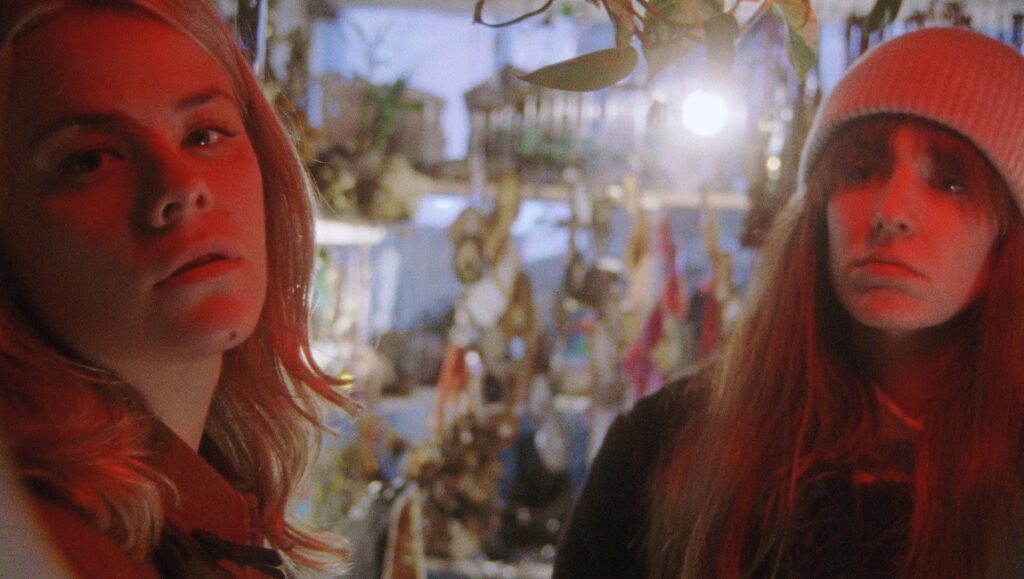The Scary of Sixty-First is an incredibly engaging piece of camp in the narrative form of classic paranoia-thrillers.
Recently, while on my way to lunch with two of my close friends, I stumbled across a building I’d only seen before in pictures. Erected in Tribeca, a granite monolith as forbidding as the best of any work of Brutalism, it made me stop a moment and think how such a creation could have evaded my sight until now. There must be many buildings like it in this city; perhaps not so austere, but just as ominous and repellent — they just need some kind of event to bring them to one’s attention, where it feels as though the entire fabric of the city has been inverted. Nowadays this sensation doesn’t just belong to the psychotics of the world. In the internet age, rumors and speculation penetrate and permeate the cultural consciousness on a scale quite impossible in the past, generating a substratum of alternative knowledge for those skeptical enough of mainstream discourse to have their deepest fears about the wealthy and powerful affirmed. Like Descartes’ doubt concluded in his knowledge of a new subjectivity, so this new doubt uncovers a world where our political institutions have been corrupted and allowed those with the necessary wherewithal to pick apart their rotting carcasses, taking what’s left for themselves.
Into that context enter The Scary of Sixty-First, the directorial debut of Dasha Nekrasova, actor and co-host of the podcast Red Scare, who first broke into the spotlight with a viral video in which she shrugs away the antagonisms of a “journalist” representing the quack paranoiacs at InfoWars. Red Scare has successfully staked its place in the world of podcasting since its inception a few years ago: a group of left-leaning women belonging to the so-called “dirtbag” aesthetic, their discussions and guests have enabled them to find a place within the genre of cultural commentary so popular at the moment. Often described as “nihilistic” and “irreverent,” it’s quite clear that the spirit of the podcast lives and breathes in this film focusing on the malevolent deeds and death of the billionaire Jeffrey Epstein. The story begins with two female friends moving into a new apartment. “Can we afford this?” is one of the first questions out of their lips. It’s a strange space; one with a mirror on the ceiling of a bedroom, scratch-marks on the wall of a closet, and suspect stains splashed across a mattress. Soon enough, Dasha makes an entrance, nameless and defined by little more than her inquisitive interest in the case of Epstein. The apartment, as it turns out, used to belong to the man himself, and so begins their descent into the psychosexual madness of Epstein’s occultic conspiracies.
What’s most surprising about Scary is its camp aesthetic, which deflates the seriousness and prestige of one of the clearest reference points at play here, Żuławski’s Possession. One of the defining qualities of camp is the irony with which it treats its subject matters, meaning that the girls can have their cake both ways — they can eat it and fuck it too — allowing for the horror of the Epstein case to become humor; not because the man’s actions were in any way funny, but because the only reaction left when one confronts the truth of their powerlessness is to simply laugh (or cry). Loaded up with enough Vyvanse to ensure that their brains can’t slow down, Dasha and one of the girls from the apartment begin trawling through the veritable wealth of conspiracy material on the internet, making themselves more and more paranoid until every journey out of the apartment is a frantic series of glances at anything and everything. What, ultimately, Dasha captures so well with this film is the kind of reasoning (or lack thereof) that individuals go through in order to progress down the rabbit-hole of conspiracy culture. (Indeed, the entire world looks different when one reaches the bottom of it.) Her engagement with the narrative form of classic paranoia-thrillers — through the shifting actantial functions of the film’s characters and sudden transformations of its quotidian spaces — asserts this debut as a slight yet incredibly engaging piece of camp. Its sense of humor knocked me off my feet, and it’s been far too long since I’ve been able to say that.
Originally published as part of Berlin Film Festival 2021 — Dispatch 4.


Comments are closed.